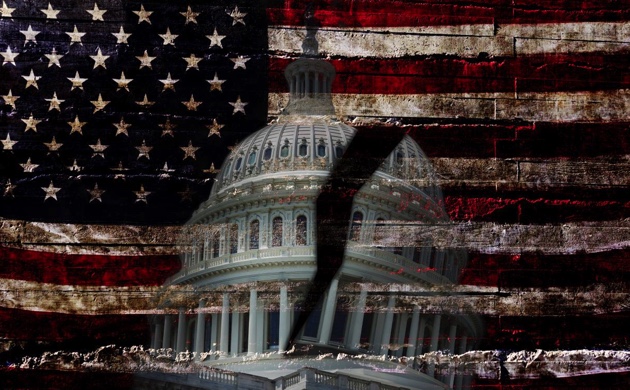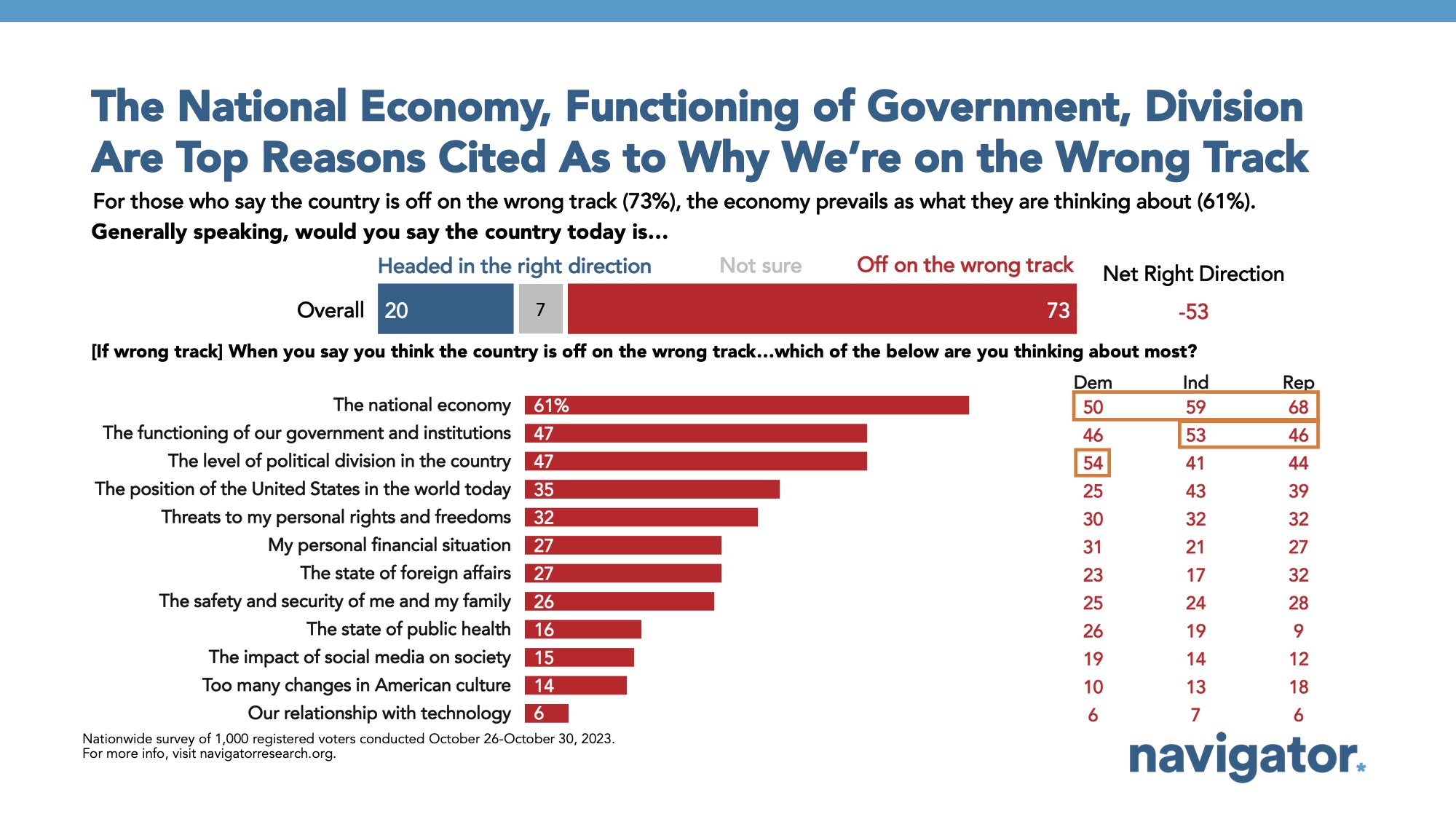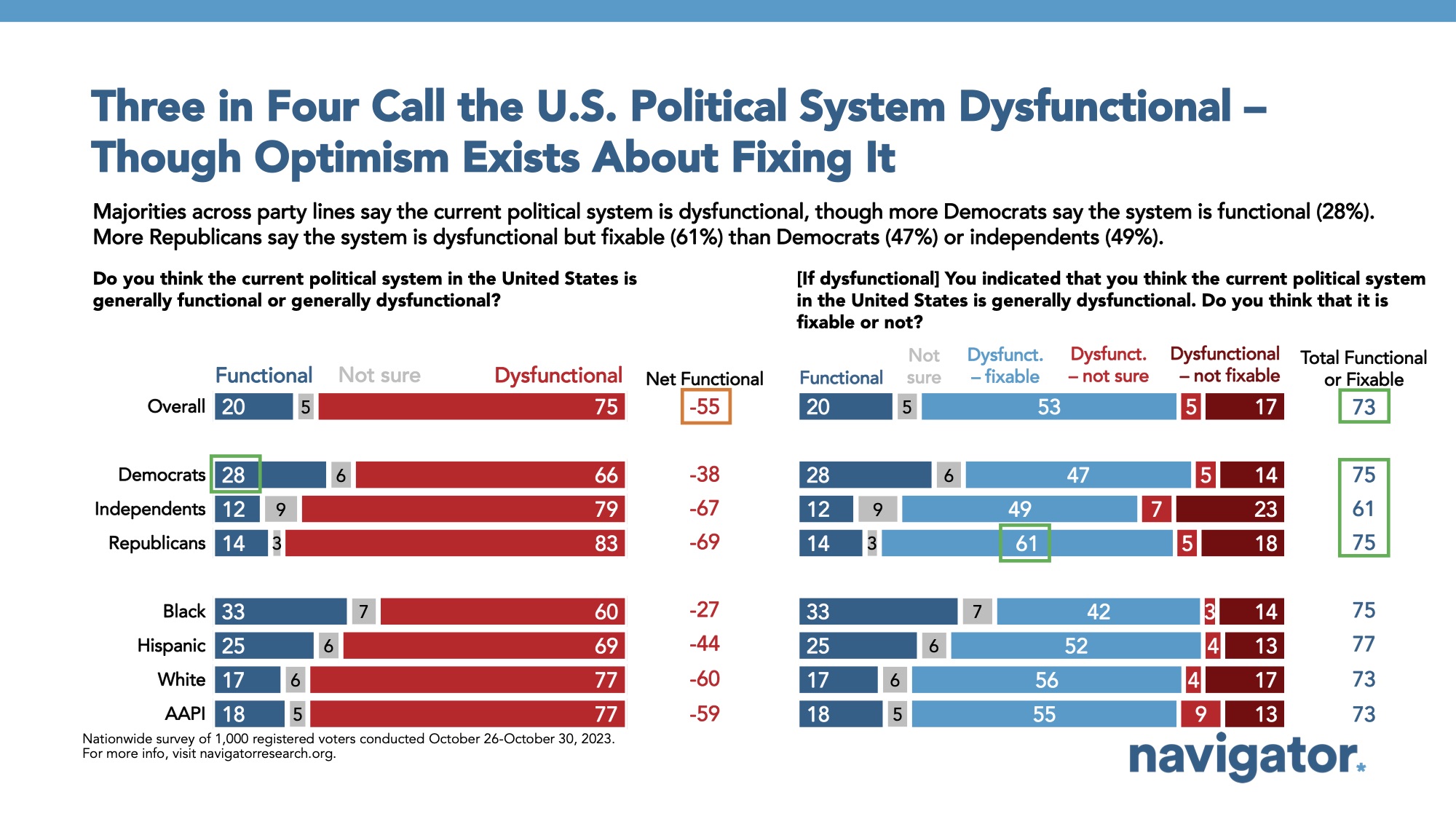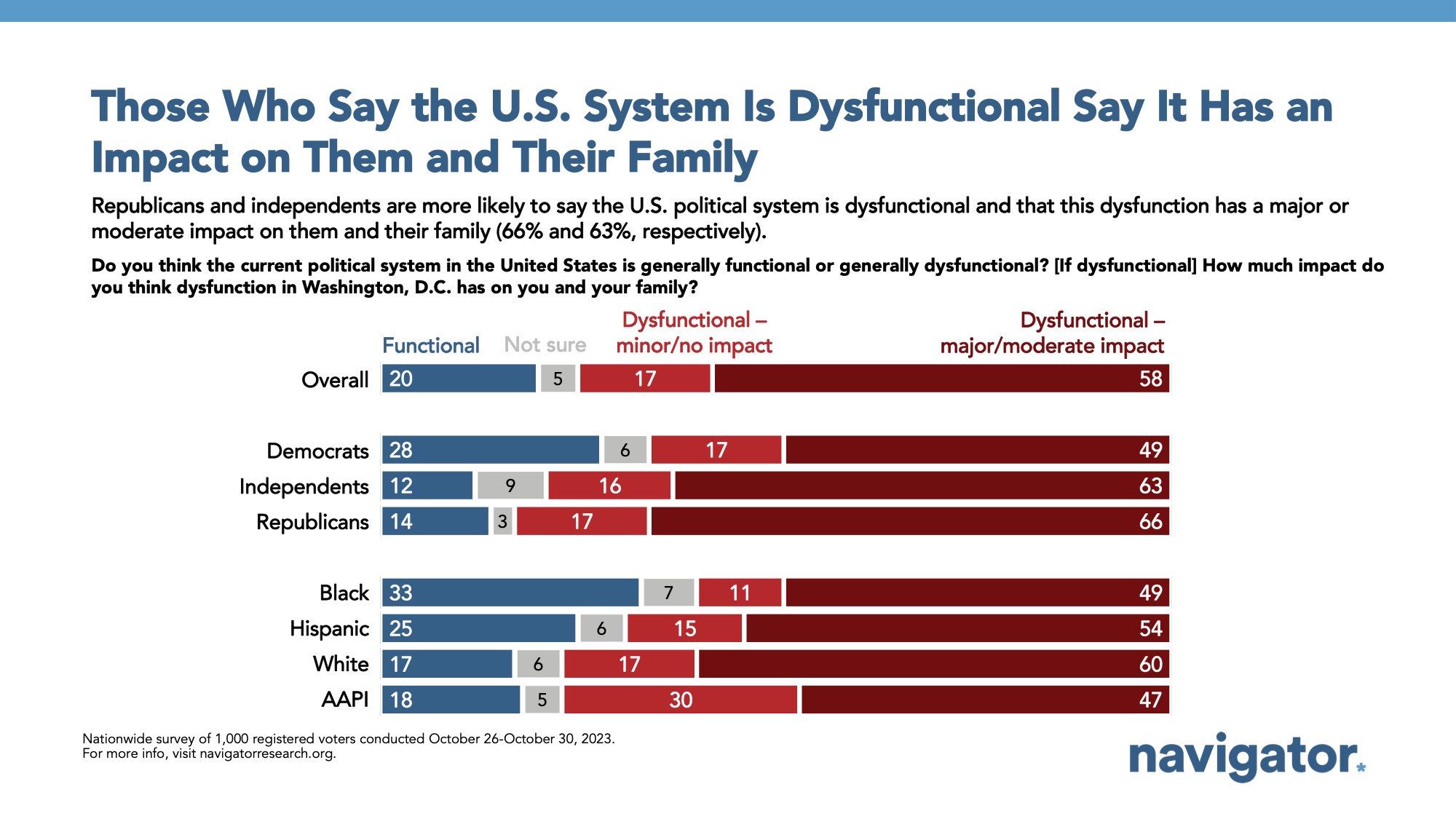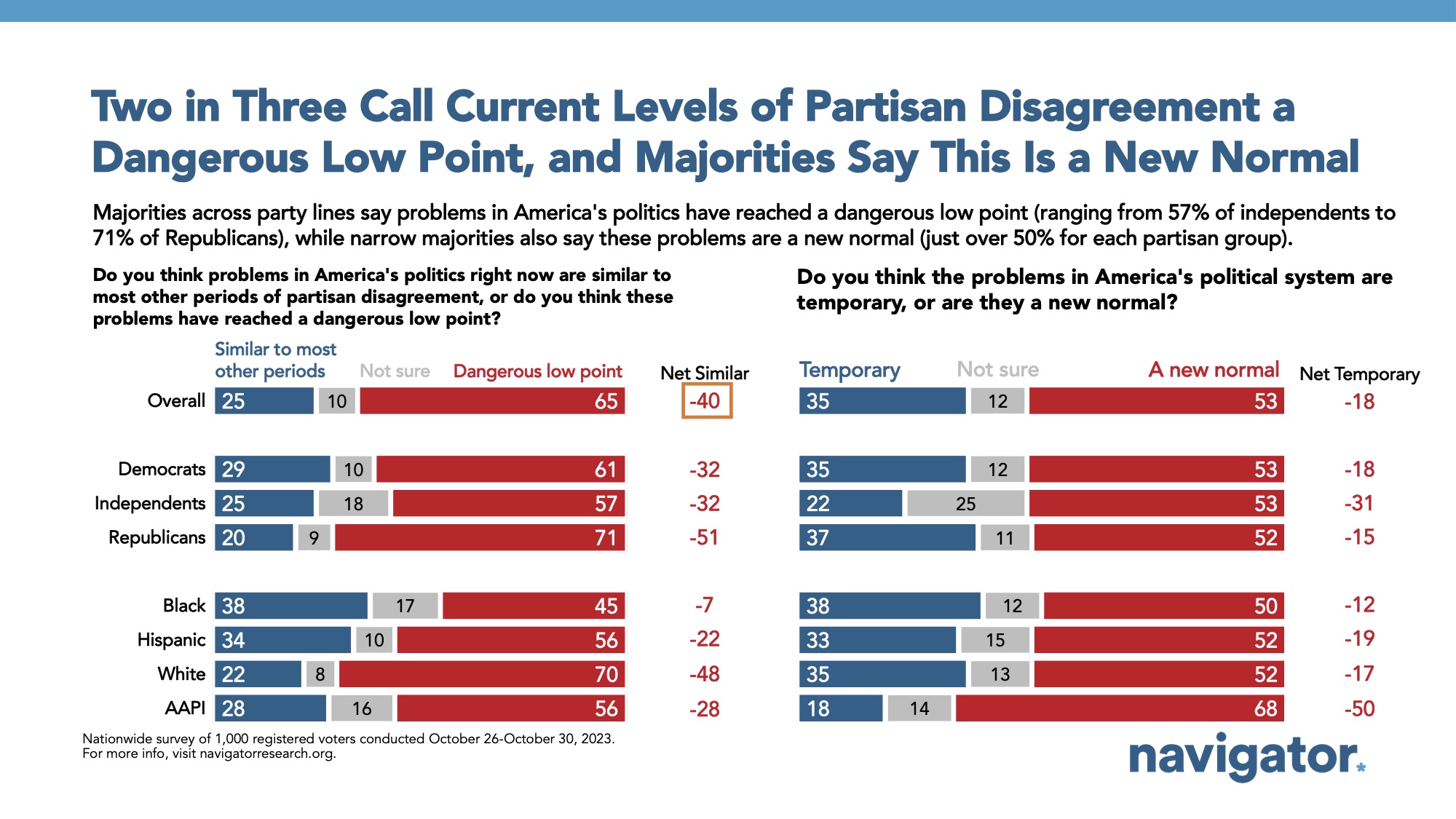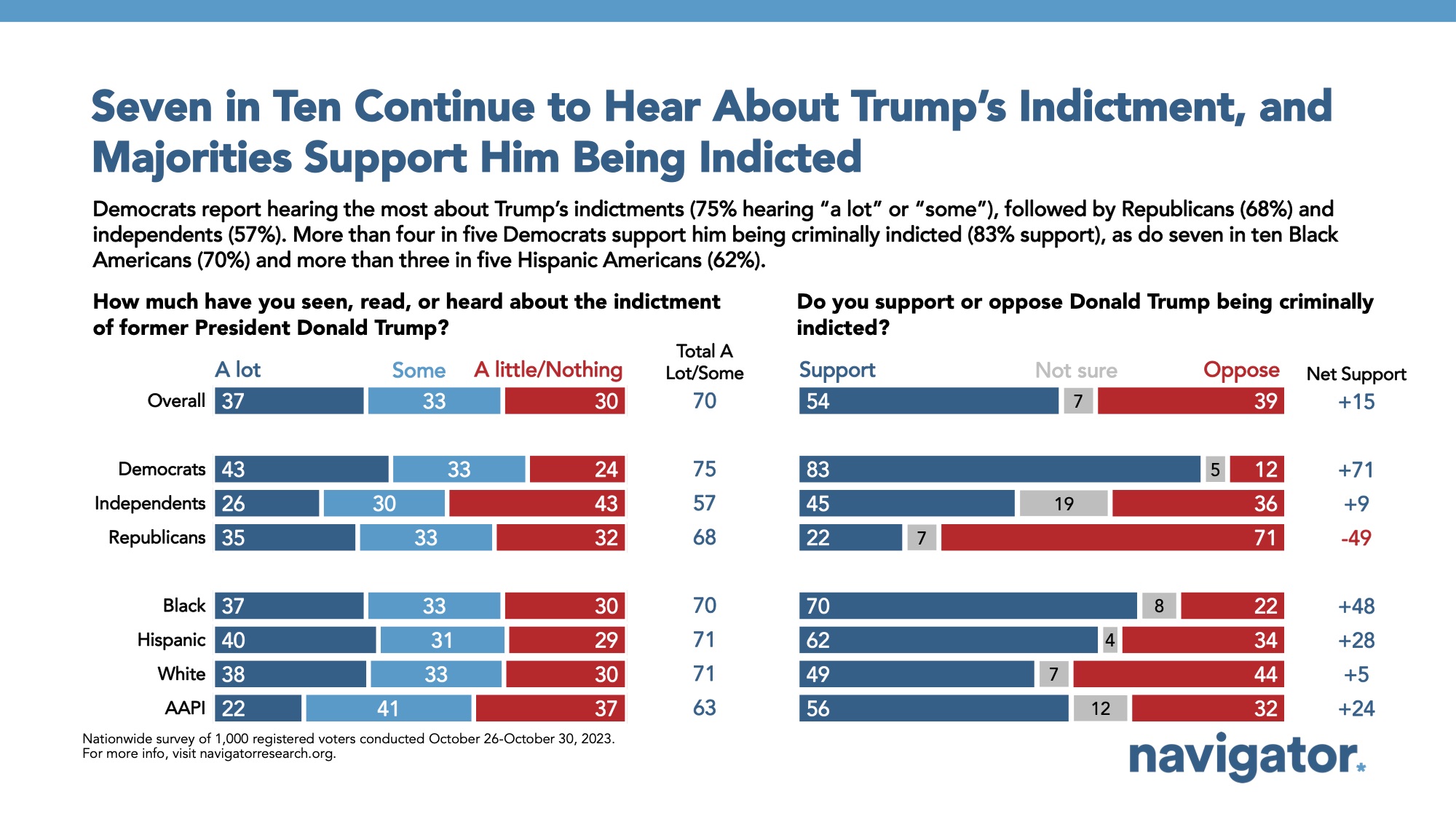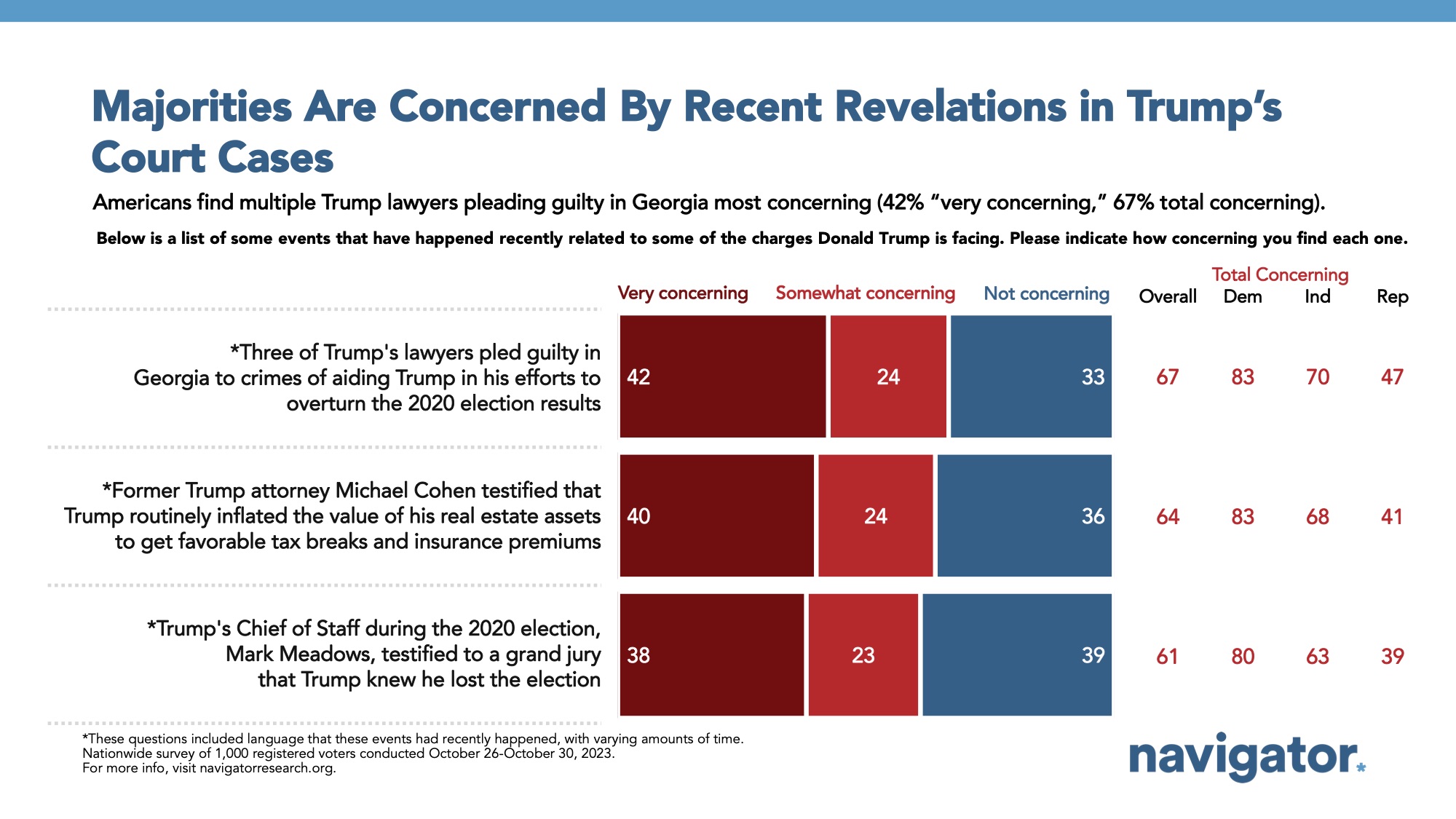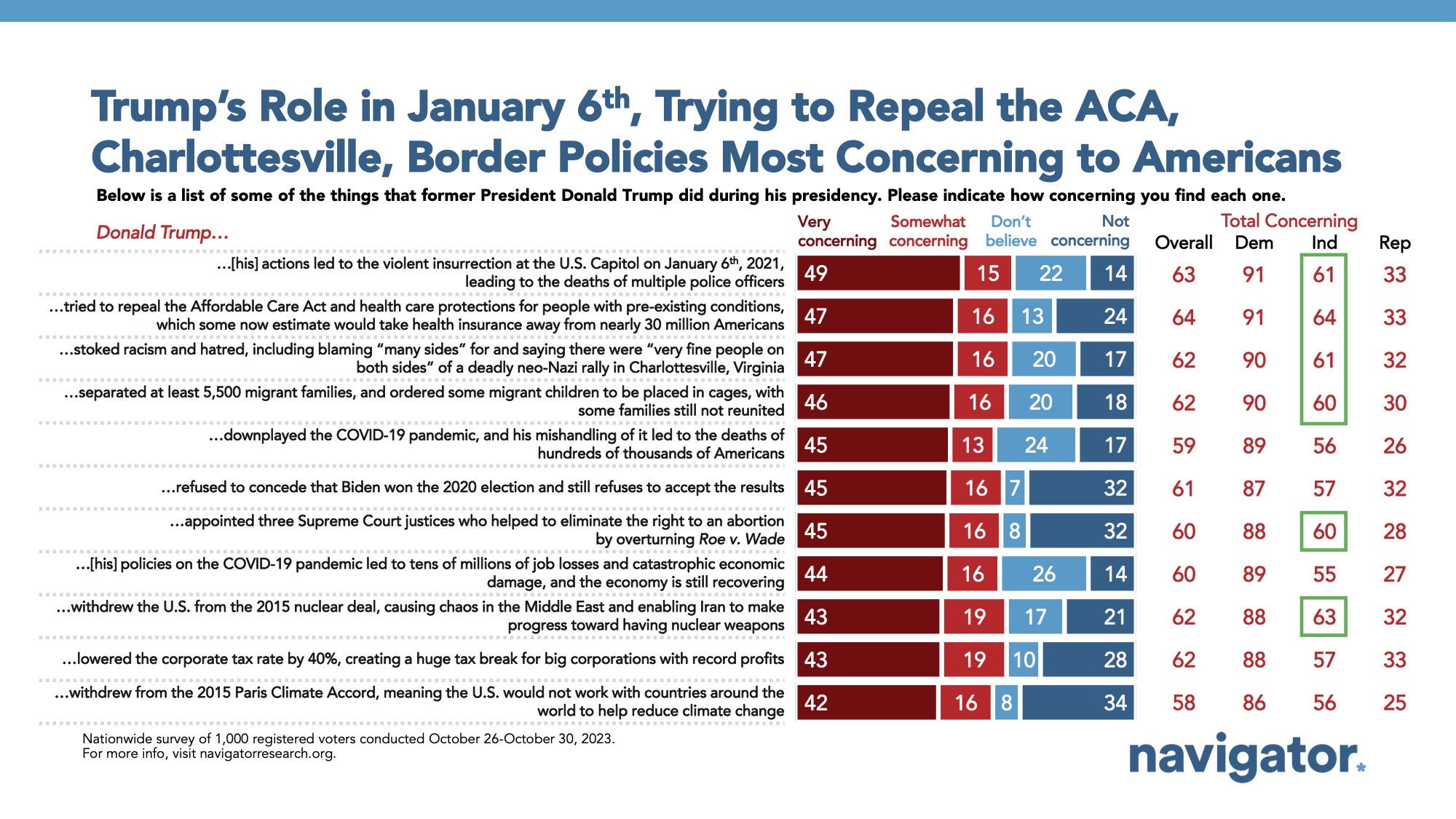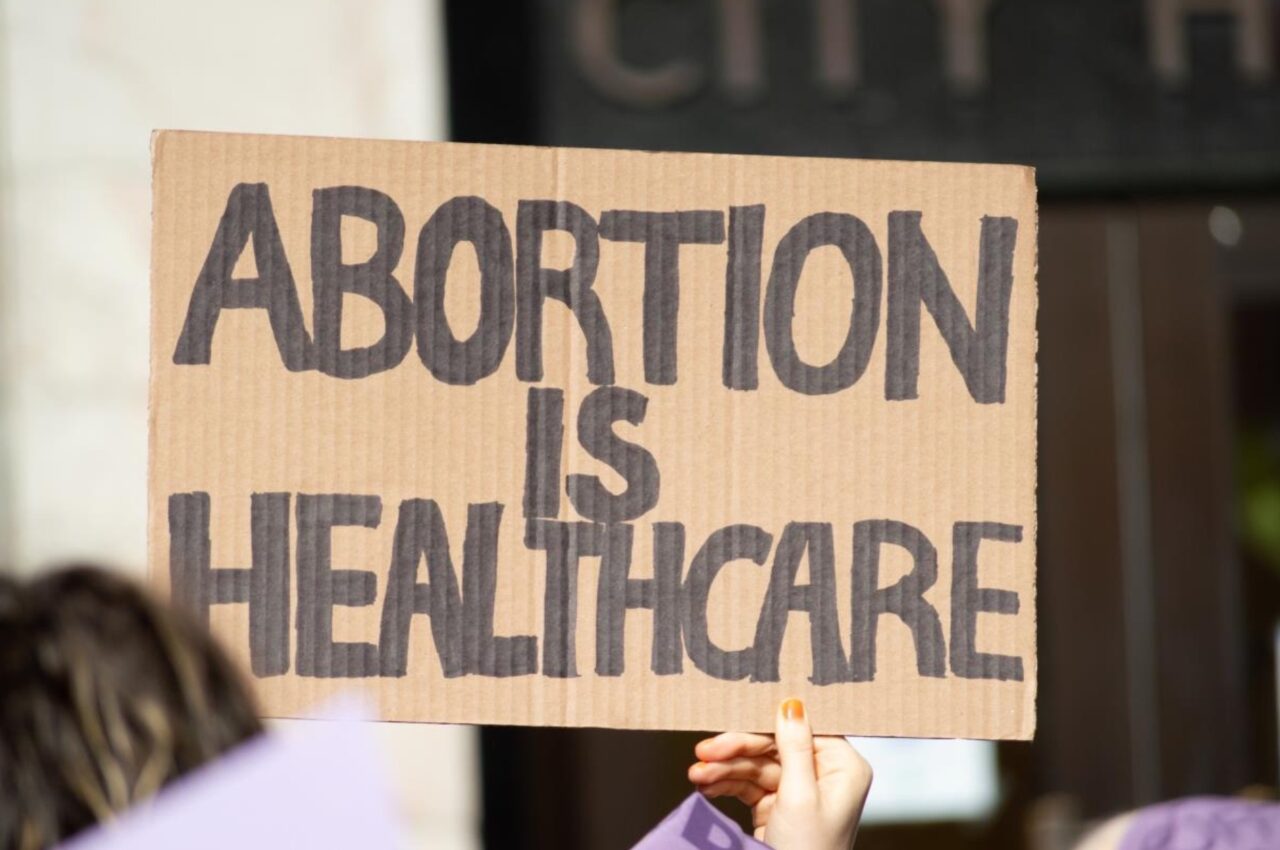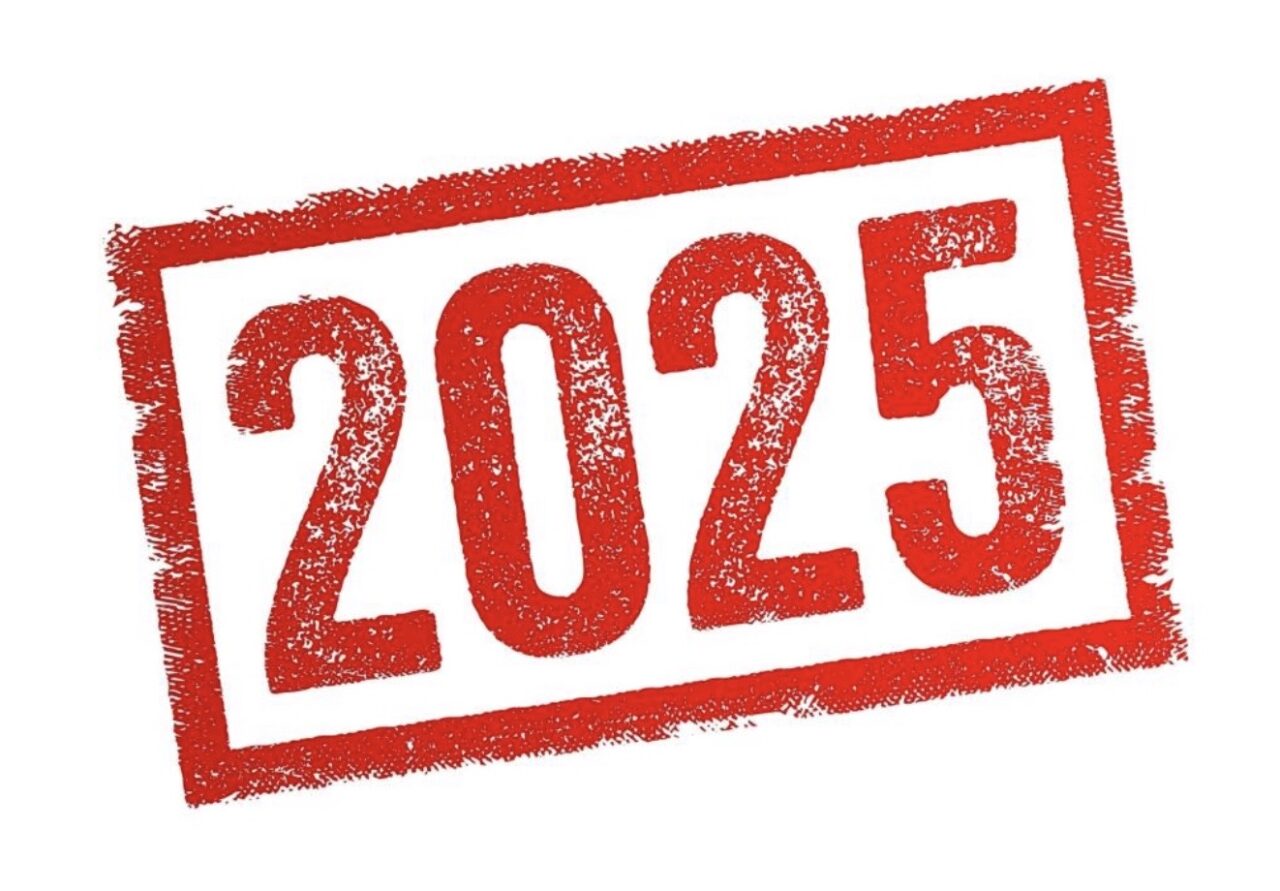Poll: Political Dysfunction
This Navigator Research report contains polling data on how Americans evaluate the current state of the U.S. political system, reaction to recent revelations in Donald Trump’s criminal cases, and a retrospective look at the top concerns about actions taken during Trump’s presidency.
Most Americans feel the country is off on the wrong track.
Americans feel the country is off on the wrong track, and issues surrounding the economy, political division, and government institutions are driving that perception. Nearly three in four say the country today is off on the wrong track (73 percent), compared to 20 percent who believe the country is headed in the right direction. A majority listed “the national economy” as a reason the country is off on the wrong track (61 percent), followed by “the functioning of our government and institutions” and “the level of political division in the country” (both with 47 percent). 68 percent of Republicans say the national economy is a reason for the country being off the wrong track, and while 50 percent of Democrats agree, the most common among Democrats for thinking the country is off on the wrong track is political division (54 percent).
- Women under the age of 55 are more likely to rate “threats to my personal rights and freedoms” as a reason the country is off on the wrong track (34 percent) more than women 55 and older (26 percent).
There is some optimism for improvement, as a majority say the political system is dysfunctional, but fixable.
While a majority of Americans feel the current state of the political system in the U.S is dysfunctional, a similar majority are optimistic that it is fixable. While three in four Americans overall say the U.S. political system is dysfunctional (75 percent), a similar share — 73 percent — believe our political system is either functional (20 percent) or dysfunctional, but fixable (53 percent). While similar shares of Republicans and Democrats believe political dysfunction in the U.S. is either functional or dysfunctional, but fixable (73 percent and 72 percent, respectively), Democrats are significantly more likely to start from the position that our political system is functional (28 percent) than Republicans (14 percent) while Republicans are significantly more likely to think our political system is dysfunctional, but fixable (61 percent) than Democrats (47 percent).
- Nearly three in five Americans fall into the category of believing the political system is dysfunctional, and reports that dysfunction has a major or moderate impact on their life (58 percent), driven mostly by Republicans (66 percent) and independents (63 percent).
- Three in four Americans living in households earning less than $50,000 a year say the dysfunction of the US political system is fixable (74 percent), 6 points higher than those living in households earning more than $100,000 a year (68 percent).
Two in three Americans believe partisan disagreement is at a dangerous low point, and a majority believe it is the new normal.
65 percent of Americans, including 61 percent of Democrats, 57 percent of independents, and 71 percent of Republicans, believe that the problems in America’s politics right now have reached a dangerous low point of partisan disagreement. A majority describe these problems of partisan disagreement as the new normal by 18 points (53 percent a new normal – 35 percent temporary).
- 74 percent of Americans above the age of 65 believe partisan disagreement is at a dangerous low point, while 57 percent of those under the age of 35 believe partisan disagreement is at a dangerous low point.
Americans continue to hear about former President Trump’s indictments, and majorities are concerned by revelations in his court cases.
Seven in ten continue to hear about Trump’s indictments (70 percent), including 75 percent of Democrats, 57 percent of independents, and 68 percent of Republicans. A majority also supports Trump being criminally indicted (net +15; 54 percent support – 39 percent oppose), including a net +9 point plurality of independents (45 percent support – 36 percent oppose). More than three in five Americans are also concerned by recent revelations in Trump’s court cases, including:
- Three of Trump’s lawyers pled guilty in Georgia to crimes of aiding Trump in his efforts to overturn the 2020 election results (67 percent concerning, including 70 percent of independents);
- Former Trump attorney Michael Cohen testified that Trump routinely inflated the value of his real estate assets to get favorable tax breaks and insurance premiums (64 percent concerning, including 68 percent of independents); and,
- Trump’s Chief of Staff during the 2020 election, Mark Meadows, testified to a grand jury that Trump knew he lost the election (61 percent concerning, including 63 percent of independents).
Majorities find several of the actions Donald Trump took during his presidency to be concerning.
The top action considered concerning overall and among independents is the former president’s attempt to repeal the Affordable Care Act, with 64 percent each finding it concerning and 49 percent finding it “very” concerning. Other top concerns from nearly two in three Americans include the former president’s involvement in the January 6th insurrection (63 percent, including 47 percent who find “very” concerning);(49 percent Trump’s stoking of racism and hatred over the deadly neo-Nazi rally in Charlottesville, Virginia (62 percent concerning, including 47 percent who find it “very concerning”); and, his family separation policy at the southern border (62 percent concerning, including 46 percent who find it “very concerning”).
- 63 percent of independents also find former President Trump withdrawing “the U.S. from the 2015 nuclear deal, causing chaos in the Middle East and enabling Iran to make progress toward having nuclear weapons” to be concerning.
- Three in four Americans under the age of 35 are concerned by former President Trump’s actions that led to the violent insurrection at the US Capitol on January 6th, 2021 (73 percent).
About The Study
Global Strategy Group conducted public opinion surveys among a sample of 1,000 registered voters from October 26-October 30, 2023. 100 additional interviews were conducted among Hispanic voters. 75 additional interviews were conducted among Asian American and Pacific Islander voters. 100 additional interviews were conducted among African American voters. 100 additional interviews were conducted among independent voters. 100 additional interviews were conducted among voters ages 18-34. The survey was conducted online, recruiting respondents from an opt-in online panel vendor. Respondents were verified against a voter file and special care was taken to ensure the demographic composition of our sample matched that of the national registered voter population across a variety of demographic variables.
